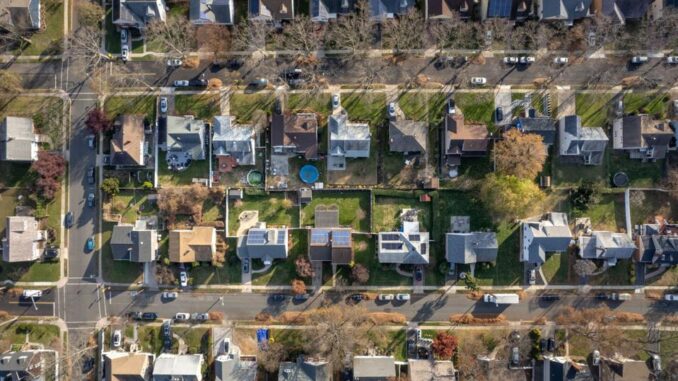
As the Federal Reserve continues to raise rates into 2023, the one sector of the economy feeling the most pain from the move is housing. Housing is very sensitive to interest rates, and as interest rates rose in 2022, so did mortgage costs, cutting the affordability of housing for many.
However, the cost of a 30-year-mortgage peaked at over 7% last November and has dropped back slightly since, now as the Fed contemplates further hikes, mortgage costs are edging up once again. The markets had thought the Fed was close to being done with rate hikes, but now rate hikes could continue into June based on what fixed income markets are implying.
That could spell trouble for the housing market. For example, the most recent Fed minutes from their February meeting stated that “activity in the housing market had continued to weaken, largely reflecting the increase in mortgage rates over the past year.”
Falling House Prices
As much as trouble may be ahead for the housing market, prices have not fallen on a year-over-year basis on most recent estimates. For example, Zillow has shown prices trending down since August 2022 but still up almost 9% year-over-year. That’s because of strong house price gains in early 2022. RedfinRDFN -7.8% data is less encouraging, having seen monthly house price declines since May 2022 and with house prices just over 1% on a year-over-year basis on their estimates.
However, both market assessments may show annual declines in house prices over the coming months if current trends continue. That’s because the bulk of annual gains in house prices for the past 12 months are from the first half of 2022, that data will drop out of the calculation by the summer and current house price trends appear a lot more sluggish. Both Zillow and Redfin forecast house prices to show little change for the next 12 months in a sharp departure from recent price growth.
The Affordability Problem
A key issue for many regions, including the U.S. west coast, is the affordability of housing. As house prices rise faster than incomes, so houses become less affordable. That’s what we’ve seen in the U.S. in recent years. However, low interest rates helped home-buyers afford a mortgage, even if the overall price of the home was high relative to their income levels.
Now, as mortgage rates rise sharply that picture is changing. The Atlanta Fed’s Housing Affordability Monitor currently estimates that housing affordability is returning to lows not seen since 2007. That’s largely because mortgage costs have doubled over the past year. Unfortunately, if the Fed continues to raise interest rates that’s unlikely to change. That could cause house prices in the U.S. to fall in 2023.
Source: www.forbes.com



